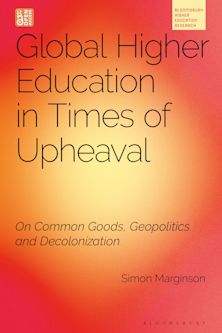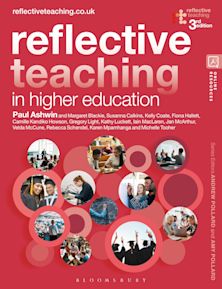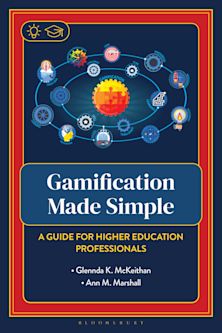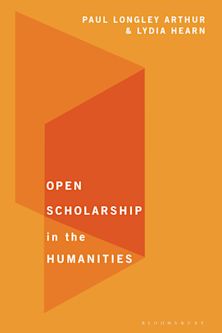- Home
- ACADEMIC
- Education
- Higher Education
- Present Successes and Future Challenges in Honors Education
Present Successes and Future Challenges in Honors Education
Present Successes and Future Challenges in Honors Education
For information on how we process your data, read our Privacy Policy
Thank you. We will email you when this book is available to order
You must sign in to add this item to your wishlist. Please sign in or create an account
Description
Present Successes and Future Challenges in Honors Education is the first volume in an edited series examining the proliferation of honors programs and colleges in American higher education. While honors education has become ubiquitous in American higher education, this transformation has happened without systematic attempts to align what honors means across institutions, and absent a universally agreed upon definitions of what honors is and what it might aspire to be in the future. This generates possibility and flexibility, while also creating rather serious challenges.
The contributors document the decades-long structural transformations that led to the rise of honors education while also providing perspective on the present and future challenges in honors education. The chapters address such issues as ensuring equity in honors, how we ought to think about student success and frame this for external stakeholders, and how the diffusion of honors-inspired pedagogies elsewhere in the university forces us to rethink our mission and our day-to-day practice. Throughout, their investigations are grounded in the present while turning a keen and perceptive eye to the future.
Table of Contents
Rhonda Phillips, Purdue Honors College
Chapter 1: Introduction: The Seat near the Electrical Outlet
Robert W. Glover, University of Maine
Katherine M. O’Flaherty, Arizona State University
Chapter 2: Growth and Evolution of Collegiate Honors Education in the United States
Patricia Smith, University of Central Arkansas
Rick Scott, University of Central Arkansas
Chapter 3: Equity in Honors: An Academic Oxymoron?
Patrick Bahls, University of North Carolina, Asheville
Jessica Pisano, University of North Carolina, Asheville
Chapter 4: Educating Honors Students for Today, Tomorrow, and Twenty-Years-Out
Amy E. Story, Baldwin Wallace University
Chapter 5: Seminars, Curricula, Rigor: Paradoxical Constraints on the Future of Honors
Thomas J. Pfaff, Ithaca College
Robert Sullivan, Ithaca College
About the Editors and Authors
Index
Product details
| Published | Aug 09 2016 |
|---|---|
| Format | Ebook (Epub & Mobi) |
| Edition | 1st |
| Extent | 94 |
| ISBN | 9781475818284 |
| Imprint | Rowman & Littlefield |
| Series | Honors Education in Transition |
| Publisher | Bloomsbury Publishing |
About the contributors
Reviews
-
Given the many challenges facing higher education today, it is not surprising that honors leaders are wrestling with a wide range of issues at their institutions, including some challenges that are unique to creating a compelling honors experience for all learners. Present Successes and Future Challenges in Honors Education is a timely publication and brings to light some of the most pressing issues while also providing relevant, historical context for these issues. The challenges identified in this inaugural issue (equity in the world of honors, the value of the honors education, and the role of traditional, honors pedagogical approaches in the future of an honors education) are each deserving of an entire volume. However, the approach taken to highlight these issues using on-point chapters has resulted in an accessible and useful volume, which informs honors leaders as they make strategic choices and investments for their programs and colleges.
Toni Doolen, dean of the University Honors College, Oregon State University
-
One comes away from the first volume of Honors Education in Transition intellectually excited by ideas and apprehensive, while at the same time, hopeful for the future. It is an insightful volume about honors education from its decades-long structural transformations to the challenges it faces. This is a book of real substance—detailed, original, competent, and plainspoken. It throws much light on the predicament of honors education caught between the necessities of satisfying complex bureaucracies, struggling with narrow views of education in terms of economic rewards, evolving technologies, and the need to break new ground in thinking expansively and innovatively about the future of honors education.—Rosalie Otero, professor emerita, Honors College, University of New Mexico
Rosalie Otero, professor emerita, Honors College, University of New Mexico
-
This manuscript delivers engaging questions about the future of honors education and suggests concrete directions to carry the rich heritage of honors education and its emerging curriculum forward. The authors demand an active and nimble pedagogy: honors educators must respond to the structural changes imposed by technological innovation while creating a fertile environment for students to tackle the unsolved questions of the day. An analysis of the historical roots and trends in honors education demonstrates that honors education, pervasive nationwide, will face increased difficulties with growing budget constraints. The manuscript raises the tough questions of equity and outcomes in honors education with novel suggestions for nudging an institutional culture toward more inclusivity. The manuscript also argues convincingly that the individualized experience in honors education will propel students to graduate at a higher rate than non-honors while imaginative curricular and extra-curricular honors experiences push intellectual inquiry to new heights in the undergraduate years. All in all, this manuscript asks many of the correct questions at the right time and demands all honors educators to respond to their challenges with the verve that has distinguished honors education this past century.
Douglass Sullivan-González, dean of the Sally McDonnell Barksdale Honors College, University of Mississippi

































